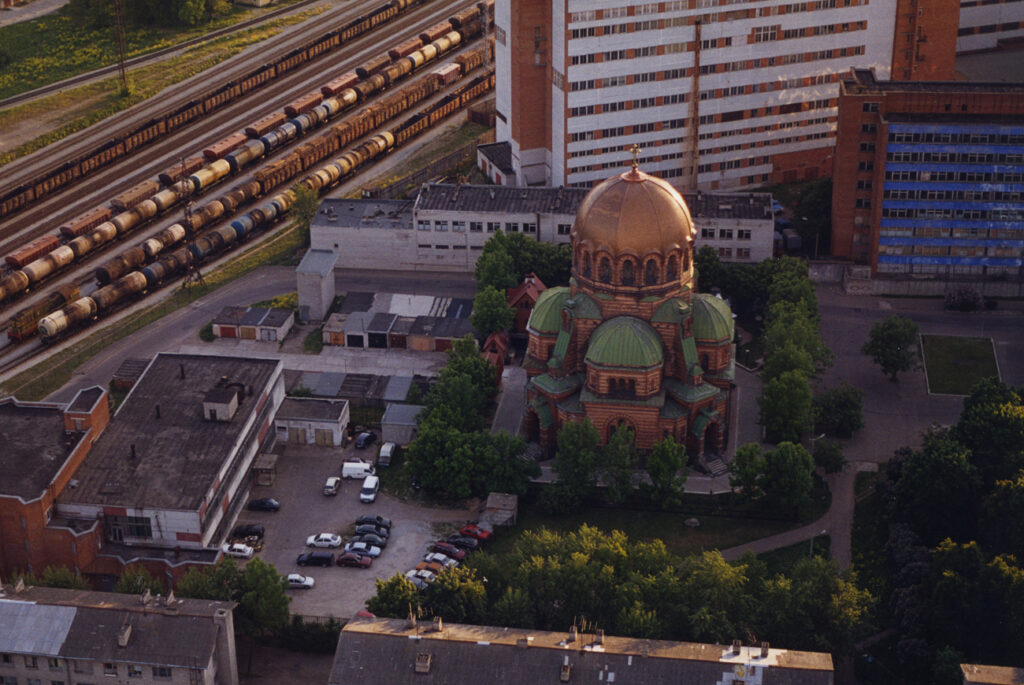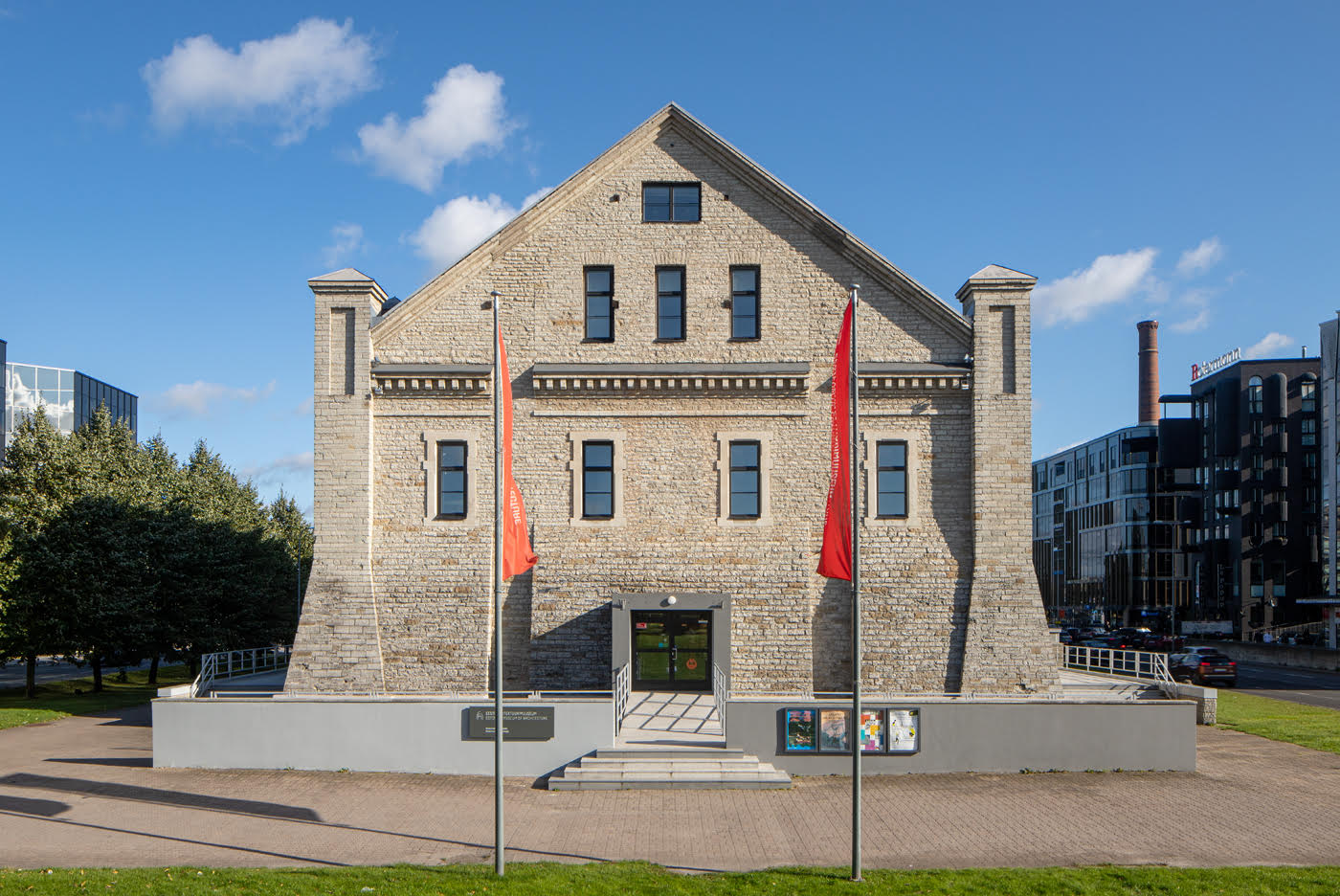Cathedral of the Resurrection of Christ in Narva, aerial photographer Endel Grensmann
Cathedral of the Resurrection of Christ in Narva
Harsh reality: The Cathedral of the Resurrection of Christ in Narva designed by Paul Alisch in 1896 is the only neo-Byzantine religious building in Estonia – here seen in its Soviet context of dishonour. Before the war, the grand building stood in the now non-existent district of Joaoru in line with Alexander’s Cathedral creating an impressive architectural ensemble. Kiriku tänav (Church Street), which once connected the two churches, was however, filled with apartment blocks after the war. The 2002 photograph by aerial photographer Endel Grensmann was purchased by the museum for its collection in 2003. Text: Jarmo Kauge
-
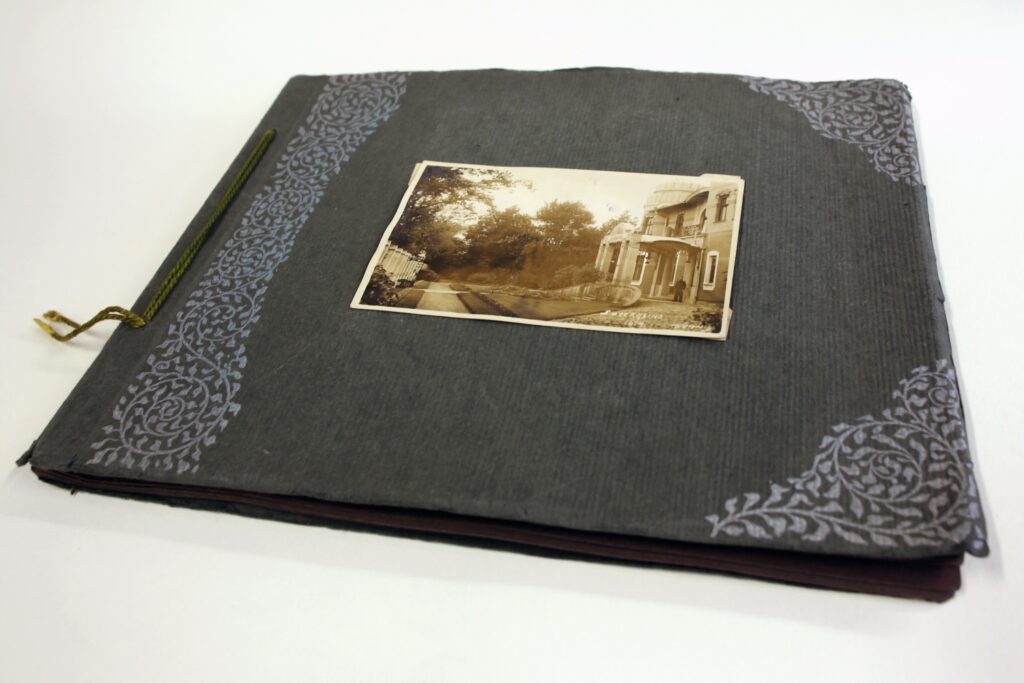
-
Photo album of Villa Ammende
-
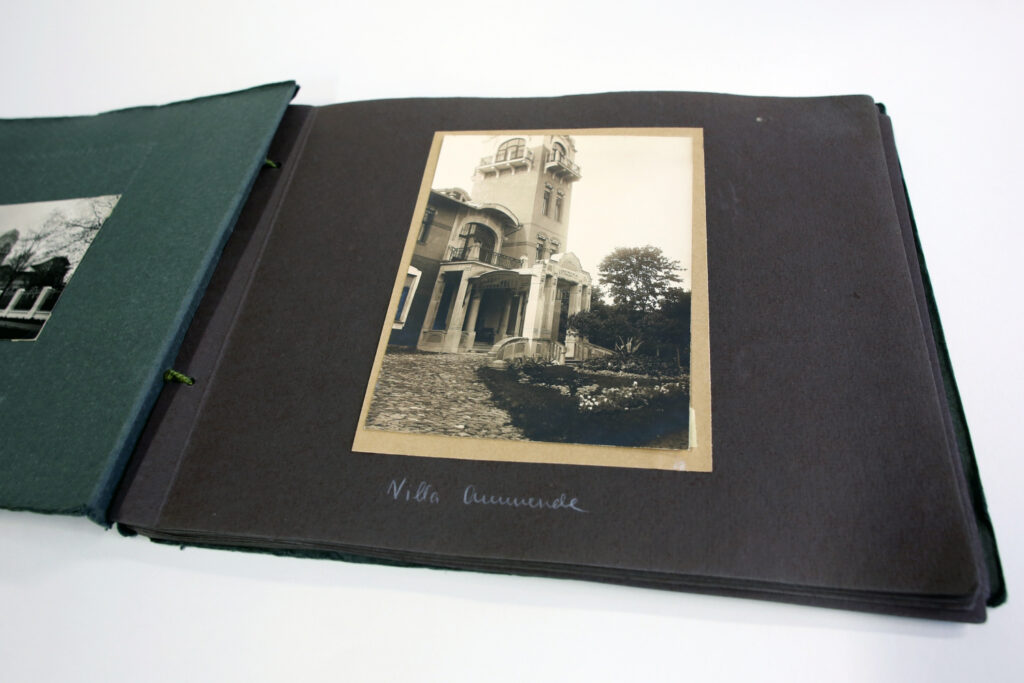
-
Photo album of Villa Ammende
-
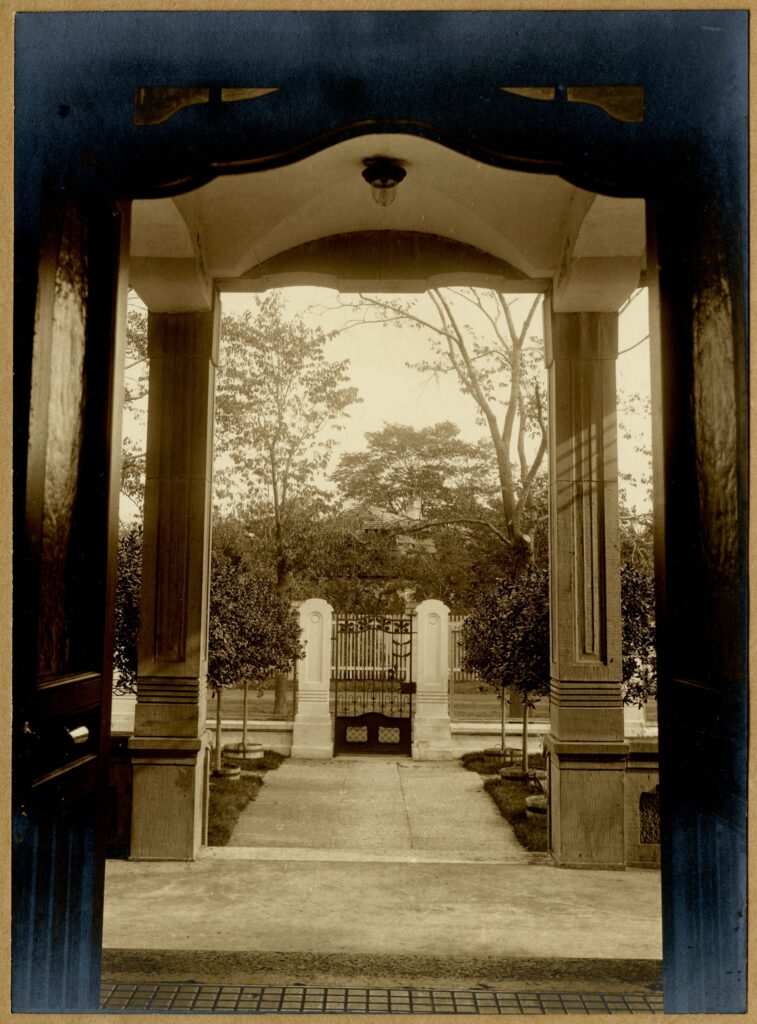
-
Photo album of Villa Ammende
-
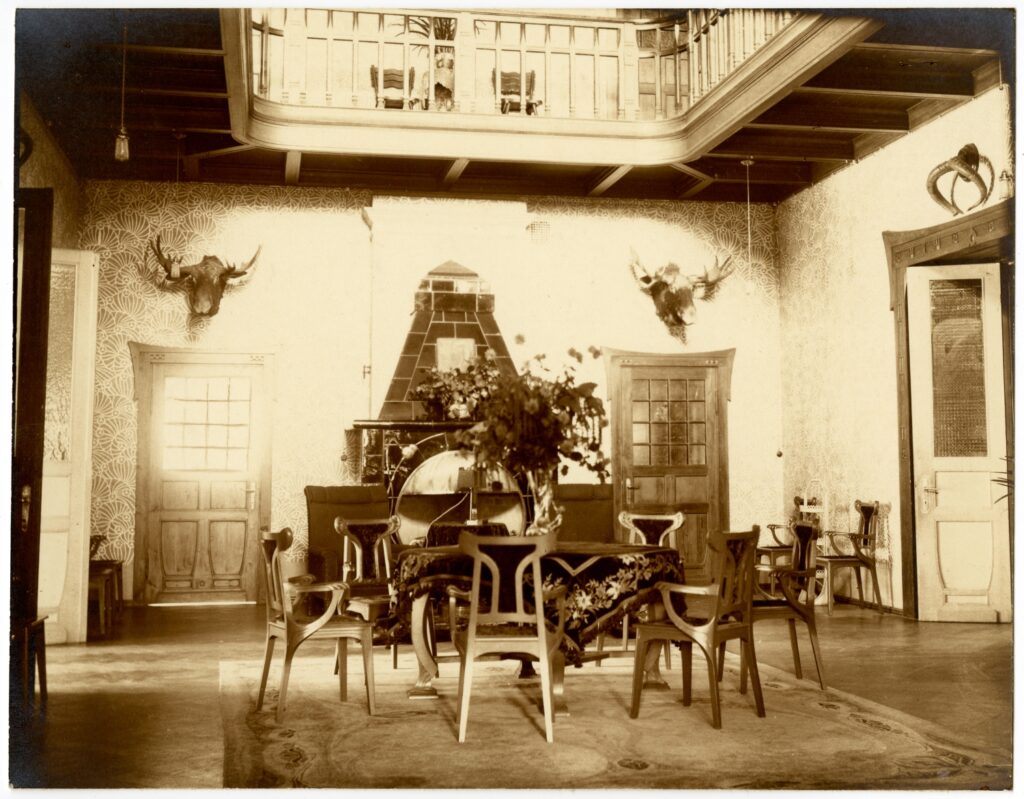
-
Photo album of Villa Ammende, the hall
-
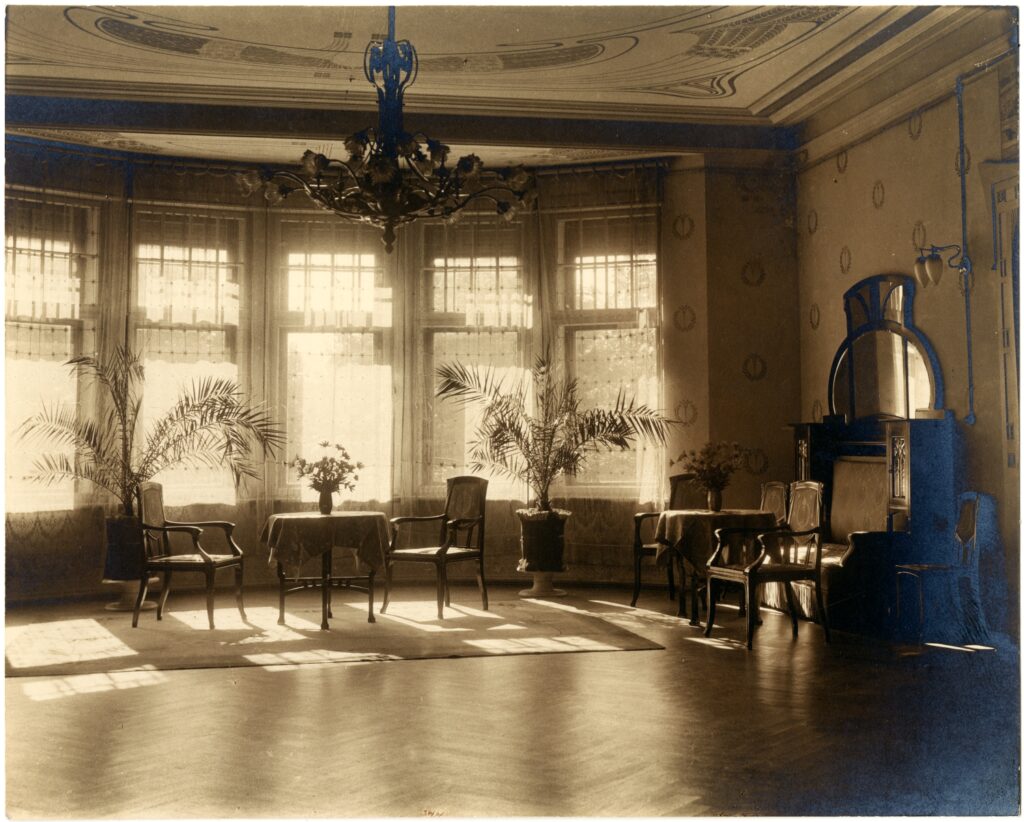
-
Photo album of Villa Ammende
-
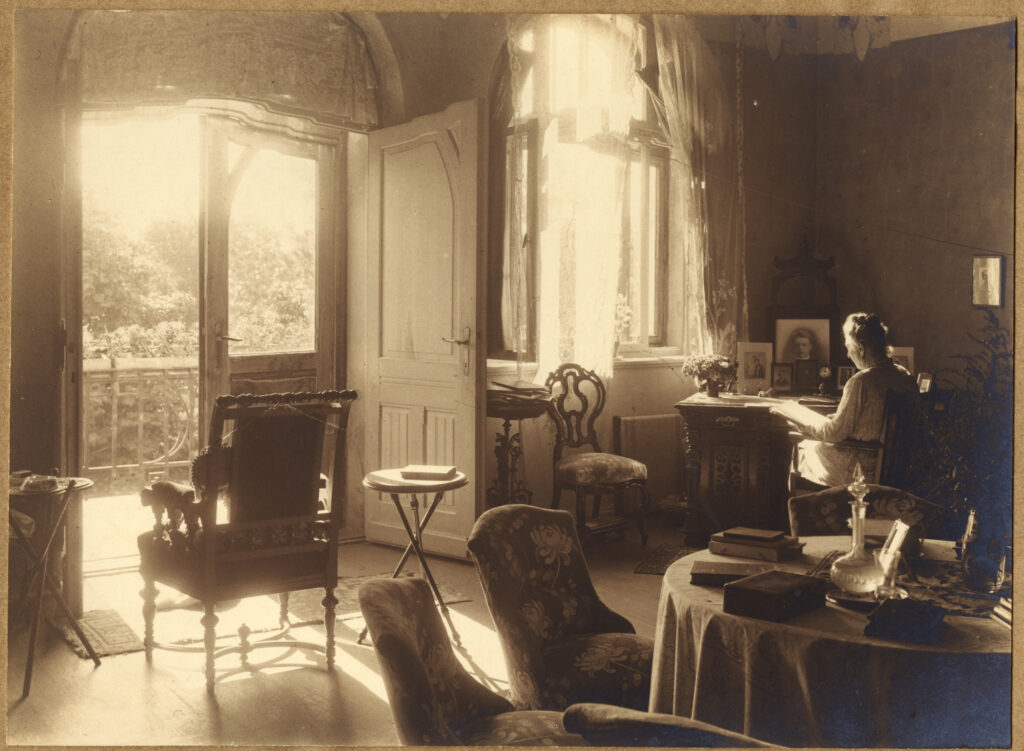
-
Photo album of Villa Ammende
-
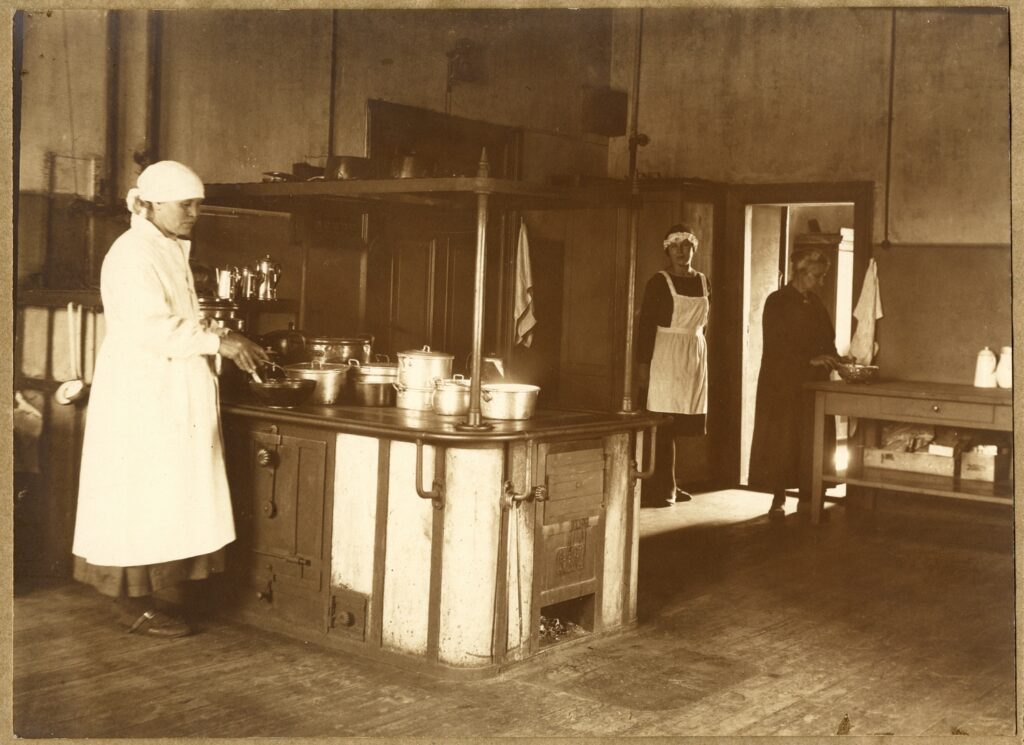
-
Ammende villa photo album, the kitchen
-
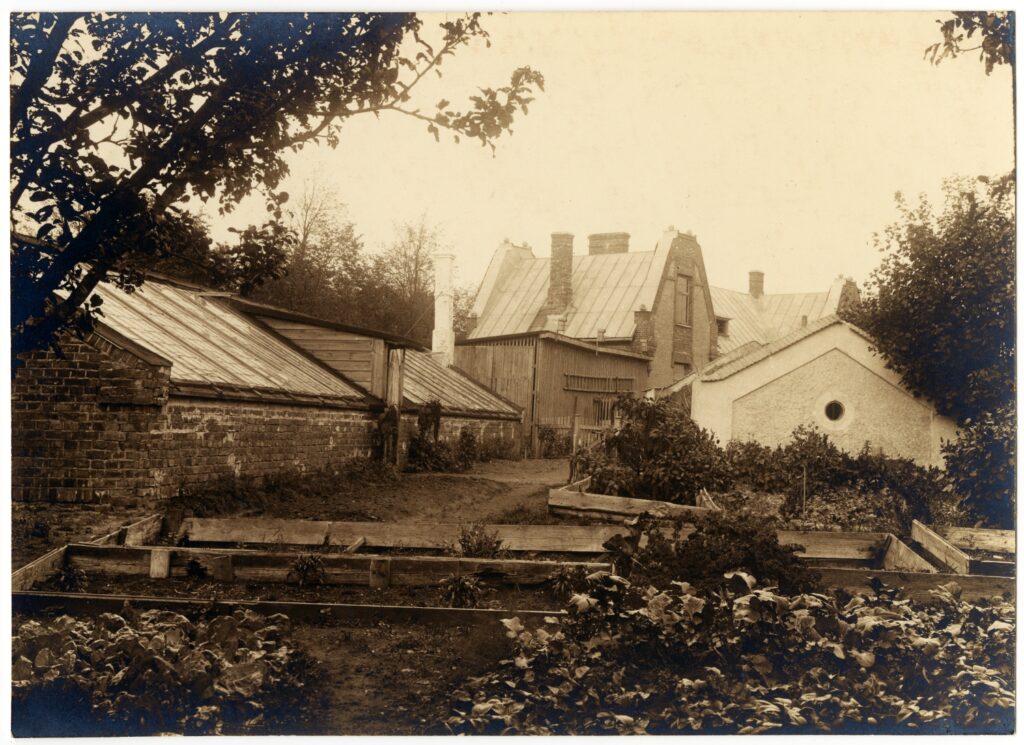
-
Photo album of Villa Ammende, vegetable garden
-
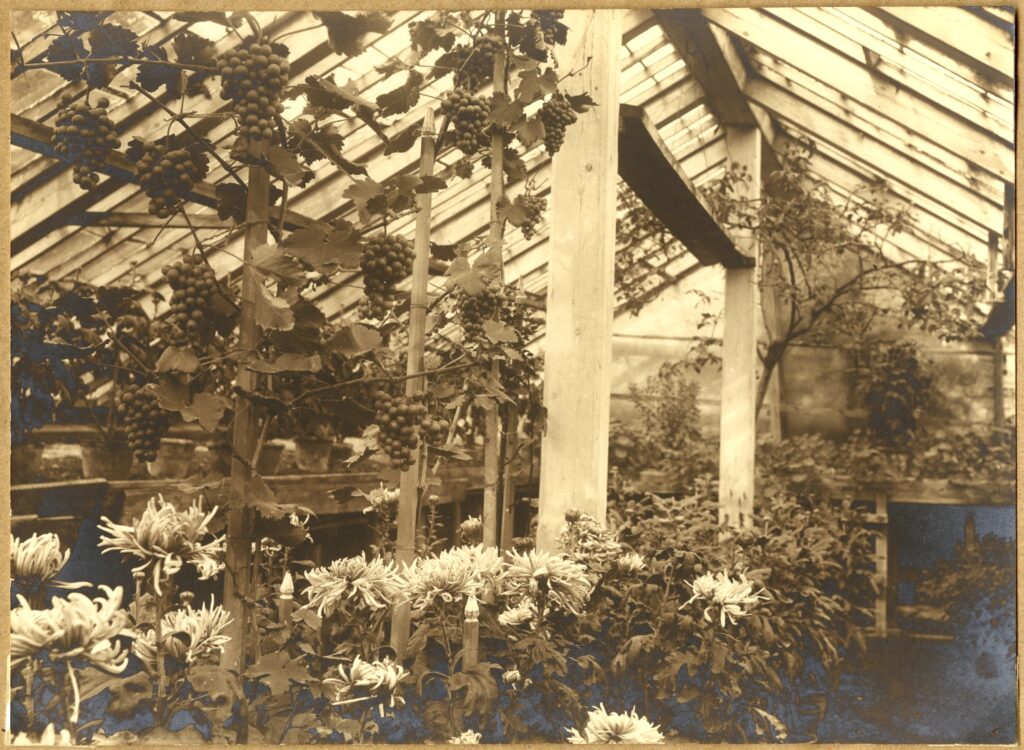
-
Photo album of Villa Ammende
Harald Krannhals, 1926. EAM 1.2.43
Album of Villa Ammende
The newest addition to the museum collection is related to the well-known Art Nouveau villa in Estonia. The album of Villa Ammende in Pärnu (architect Frithiof Mieritz, 1904) is exceptional not only for its photos of large variety of exteriors and interiors but as well as for some of the pictures taken from unusual places such as the kitchen with its staff, backyard and greenhouse depicting fruity grapes. The album shows the life and living manners of the family of a prosperous merchant displaying splendid furniture, textiles and items.
The album, lately owned by Irina Mirkov – the grandchild of Hermann Leopold Ammende – was put together for selling the house. Mr Ammende, an established merchant from Pärnu, commissioned the building from an architecture office in St Petersburg called Mieritz & Gerassimov for the wedding party of his daughter Ellen. After the festivities, the family used the luxurious house as a summer cottage until moving back to Germany in 1927.The pictures taken in 1926 are made by Harald Krannhals, the photographer from Pärnu. Addition to his work are pictures taken by Mihkel Õnnis some years later. Altogether 21 photos show some typical deteriorations happen in time. The dim areas of the photos have spots of silver coating. The album was given to the museum by Aivar Roosaar, who was involved in restoration of the villa (1995–1999). The gift shall be a befitting addition to the original project previously given to the museum (EAM 1.2.11). Text: Sandra Mälk
(click on the picture to see more)




